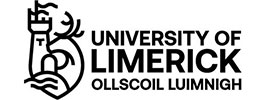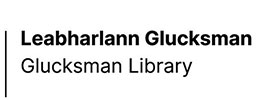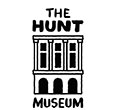Friends and colleagues have more or less collectively heaved a sigh and said ‘I have had enough of 1916….I wish the whole thing was over.’ And it is only February (at time of writing)! It is not as though we have been obliged to stand in the rain, like some North Korea sports stadium, and march merrily to daily renditions of ‘A Nation Once Again’. The most onerous demand seems to have been Sunday evening series on RTE 1, some postage stamps, and the overt commercialism of some tour operators. In Dublin this weekend one can get on a tour bus called ‘Ride the Rising.’ A terrible beauty indeed.
The chatterati refer all too frequently to Ireland catching up with the modern world or the world of modern European politics, culture or whatever. Our recent elections, they tell us, will move us more to the European norm. From my perspective on history the European norm has almost been one of absolutism, empires, fascist states and communist tyranny. These halcyon modern locations are often somewhat ill-defined and largely sectoral, or cause, specific. But perhaps one thing we could catch up with is developing a degree of comfort with our founding mythologies. It matters little that most people were voting for John Redmond or off at Fairyhouse racecourse. The reality is that through a sequence of events, good bad or indifferent, a series of shifts took place in the historical trajectory. That whole theory of the butterfly’s wing causing a hurricane somewhere else.
In 1989 the French made a fine fist of commemorating the French Revolution – not too much attention was placed on the minority, and purely gestural, act of storming the Bastille let alone the bloodbath that ensued for decades – all those millions dead – pre and post Napoleon’s stabilising influence. Our nearest neighbours got along merrily with Queen Elizabeth’s Jubilee some years back and will mark her ninetieth birthday, later this year, in ways only they can do. The Boston Tea Party was another minority sport and it has been subsumed into founding myth of the USA.
It strikes me that our disquiet is not so much from over exposure but that ongoing tension experienced by many in defining what is the ‘nationalist cause.’ The word Republican is frequently a term of abuse or ridicule. He / she is so republican …What exactly is the alternative? One would like to think than Francois Hollande and Angela Merkel are republican too? We have just had another election and for all the uncertainty the sky has not collapsed and the republic remains as a comparatively stable place. Perhaps one of the problems we face as a society is how our ‘revolution’ was not very revolutionary at all – a middle class revolution for a middle class people.
Thanks to the support of the University of Limerick and its superb holdings at the Glusckman Library the Hunt Museum is able to put on display a collection of family material associated with John Daly and Ned Daly who was executed in May 1916. This material is both evocative and telling, locating the grander national narrative in the domestic setting of one Limerick family. Heroic causes and grand gestures can, in the end, come down to a few letters and bits of paper and a prayer book. The material on view reminds us that these abstract ideals all have domestic origins and consequences.
The exhibition was intentionally juxtaposed with our most recent display of war recruitment posters form the collections of the Ulster Museum – not the most obvious 1916 theme one might say. But we beg to differ – as the images conveyed by these same war posters suggest- the prevailing narrative of that fateful year. Indeed for most people in the UK that is still the narrative – our own activities scarcely denting their own sense of history. That was our story too until the events of Easter Week 1916 took over – and what began as an almost eccentric act with all the odds against it grew and developed into the sea changes of the following years.
The Hunt Museum consists largely of the collections of one family and, when we can, we aim to explore other diverse collections, local, national or otherwise. In hosting the Daly material from the Glucksman Library, and the University’s art collection, we are building on our existing relations with the University and reminding ourselves of where the Museum was originally established and housed events we look forward to commemorating in 2017. As ever I wish to thank the Board of the Museum, the dedicated staff and many docents and interns, as well as the staff of the Special Collections Dept. of the Glucksman Library and the curator of the Visual Arts at the University of Limerick.
By Dr Hugh Maguire
Director, Hunt Museum




